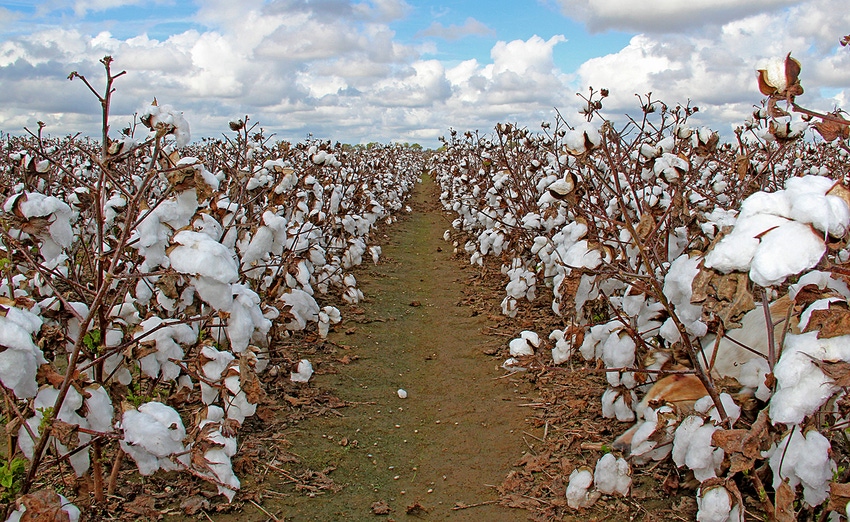March 24, 2021

In last year’s Farm Press Gin Show edition, I reported on the successful completion of the U.S. Cotton Trust Protocol pilot. I urged U.S. cotton producers to begin enrolling in this voluntary industry-leading initiative aimed at fostering a further reduction of U.S. cotton’s environmental footprint while promoting producers’ caring of people/community and personal/corporate integrity. By assessing their farming operations’ performance against specific sustainability goals, Trust Protocol producer participants can help ensure U.S. cotton remains the responsible choice throughout the global supply chain — from textile manufacturers to retailers.
Gary A dams, President and Chief Executive Officer. (National Cotton Council)
dams, President and Chief Executive Officer. (National Cotton Council)
Since this time last year, the Trust Protocol officially launched. Many producers, mills, brands and retailers have enrolled, and the initiative continues to gain significant credibility across the global supply chain.
Notable accomplishments this past year include: 1) inclusion in the Textile Exchange’s list of preferred fibers/materials; 2) selection of Control Union Certifications North America to implement an independent, third-party verification program; 3) agreement with Field to Market: The Alliance for Sustainable Agriculture to document/accelerate sustainable outcomes for U.S. cotton production; 4) inclusion in Cotton 2040 which aims to accelerate progress/maximize the impact of existing sustainable cotton initiatives; 5) enrollment of more than 70 textile mills from China, India, Turkey, Mexico, Pakistan, Vietnam, South Korea, Colombia, Honduras, Ecuador, Guatemala, and El Salvador as members who will establish the foundation for the new system providing full transparency for the global cotton supply chain; and 6) global apparel retailers joining, such as GAP Inc, which is committed to using only 100% sustainably-sourced cotton by 2025. Some of these objectives were accomplished with expertise and help provided by Cotton Council International, the NCC’s export promotions arm.
Participation needed
To date, many U.S. cotton producers have enrolled in the Trust Protocol but more need to participate if at least 50% of U.S. cotton is to be Trust Protocol registered by 2025. That’s also the year our industry has set for U.S. cotton to achieve these national sustainability goals:
• 13% Increase in productivity, i.e. reduced land use per pound of fiber;
• 18% Increase in irrigation efficiency;
• 39% Reduction in greenhouse gas emissions;
• 15% Reduction in energy expenditures;
• 50% Reduction in soil loss; and
• 30% Increase in soil carbon.
To expedite producer enrollment, the Trust Protocol has conducted numerous live webinar educational sessions over the past several months. I urge producers to learn more about the Trust Protocol at www.trustUScotton.org where they can find a schedule of upcoming educational webinars, recordings of previous webinars, information about the program’s benefits and complete the enrollment process. More information also can be obtained by emailing [email protected].
Meanwhile, the National Cotton Council (NCC), as it did this past year, will continue to engage closely with Congress and the Administration regarding critical legislative, trade and regulatory matters – with a high priority placed on seeking economic relief desperately needed by industry members due to the COVID-19 pandemic.
COVID relief
This past year, much-needed assistance was provided to U.S. cotton producers via the Coronavirus Aid, Relief, and Economic Security Act (CARES) and two phases of the Coronavirus Food Assistance Program (CFAP). The NCC, which also worked to ensure that COVID-related programs such as the Paycheck Protection Program and the Economic Injury Disaster Loan program were available for agriculture, will continue to support similar programs and legislation to ensure our industry members’ fiscal viability.
That includes engaging with Congress and the Administration, like we did in 2020 to get WHIP+. That updated disaster relief package included funding for producers structured similar to the 2017 WHIP program for hurricane, flooding (prevented planting coverage), drought, excess moisture, and wildfire relief for 2018 and 2019 losses.
The NCC also will continue to remind its producers of important government program signup deadlines. That includes the March 15, 2021 deadline to enroll in the Agriculture Risk Coverage (ARC) and Price Loss Coverage (PLC) programs for the 2021 crop year. More information on ARC and PLC, including two online decision tools that assist producers in making enrollment and election decisions specific to their operations, is at ARC/PLC Program (usda.gov).
The NCC will continue to urge producers, ginners, and other industry members to strive for zero contamination in seed cotton and lint. Because plastic contamination poses a serious threat to U.S. cotton's reputation in the global fiber market, we continue to encourage producer, ginners and their employees to watch the NCC-produced video, “Prevention of Plastic Contamination.” The video can be accessed on the NCC's "Contamination-Free Cotton" web page at www.cotton.org/tech/quality/contamfree.cfm.
That page also contains two helpful plastic contamination prevention documents -- "Recommendations and Best Handling Practices For Tama Blue Value Round Module Wrap" and Cotton Incorporated's “Prevention of Plastic Contamination When Handling Cotton Modules.”
You May Also Like




